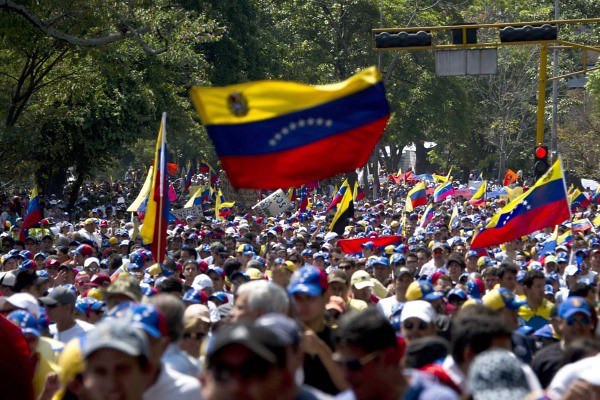By Nancy Haugh*

As both sides to the Venezuela crisis express willingness to return to the negotiating table, a review of the shortcomings in previous talks – particularly their overly ambitious agenda and excessively narrow participation – should improve the odds of success in future rounds. Four dialogues between Chavistas and the opposition preceded the collapsed 2019 talks. In each case, both sides were willing to negotiate with the presence of a neutral, trusted third-party mediator and met several times, but other requisite conditions outlined in negotiation literature, such as including potential spoilers at the table, were missing.
- The Norwegian Center for Conflict Resolution worked hard to create a negotiating structure that did not aggravate the fears of both sides by, for example, not inviting the United States or the Venezuelan military to participate. It also declined a request from the International Contact Group (ICG), a coalition of Latin American and European countries, to a merge its negotiation process with one the ICG had already launched over concerns that the ICG’s goal was regime change through electoral reform, not a negotiated agreement.
- Talks stumbled, however, because of a tactic used by self-declared President Juan Guaidó that negotiation specialists call “Type C coercive diplomacy” – his penchant for making maximalist demands and threats while borrowing power from the U.S. and other external sources – and because of problems with his “boundary role.” He was trying to represent constituencies that were not at the table, particularly his U.S. benefactors and Venezuela’s moderate opposition, to gain leverage over the government. But he could not credibly offer relief from Washington’s sanctions, which combined with the threat of military intervention were intended to effect the immediate removal of President Nicolás Maduro and hold new Presidential elections. Talks broke down in August 2019 when the U.S. imposed new sanctions, including freezing all Venezuelan government assets under U.S. jurisdiction, without consulting with Guaidó.
The government took advantage of the opposition’s “boundary roles” problem. Maduro’s team had no incentive to negotiate with a person who could not alter the U.S. sanctions. Government negotiators had previously said they were open to modifying the electoral calendar and engaging in legislative and electoral power-sharing if U.S. sanctions were lifted at least one year before the polling day. That offer fell off the table, but another – “inviting the opposition to seek a recall referendum against Maduro in two to three years’ time” – apparently still stands.
- September 16, 2019, the day after a weakened opposition declared that negotiations had been “exhausted,” Maduro reached an agreement with an offshoot of the opposition movement, the moderate National Dialogue, and the opposition split was formalized. Under this deal, Maduro would neither need to resign nor be barred from running in future elections. Ultimately, the agreement was only partially implemented, with 29 of 58 promised political prisoners actually released from prison. Additionally, instead of fulfilling its commitment to “dialogue and reconciliation,” the government formed a commission to investigate alleged corruption on the part of Guaidó and his team.
Despite the efforts of the Norwegian team, the 2019 talks neither fully addressed the needs and fears of both sides nor defused the influence of external stakeholders. In March, Norwegian mediators began to quietly explore re-initiating talks between representatives of Guaidó and Maduro. Though previous rounds failed to meet their main objective, they demonstrated that progress is indeed possible with a modified strategy.
- The literature on international negotiations suggests that increasing the number of parties at the table makes cooperation more difficult, increases information costs, and makes defection more likely, but the previous talks suffered from having too few at the table. By not including a wide array of opposition voices, a secondary channel opened for the government to reach an agreement and walk away from the process when the United States announced sanctions.
- Negotiating partial agreements, instead of a comprehensive one, appears more promising as a means of solving problems and creating momentum. The country’s historic economic and humanitarian crises offer the best chance of finding agreement and building trust between the parties and, even if not resolving the parties’ biggest needs, will benefit the people they claim to care about.
- Involving a balanced mix of regional actors as guarantors would comfort each side while pressuring them to be accountable. The members of the anti-Maduro “Lima Group” could help, as could Cuba, which has supported Maduro and has a strong record of supporting successful negotiations.
Four months into the Biden Administration, the position of the most important external actor has yet to go beyond broad statements about continuing “to work with international partners to increase pressure in a multilateral fashion toward [the] goal of free and fair elections.” In mid-May, Guaidó proposed a progressive lifting of U.S. sanctions in return for steps by Maduro toward free and fair elections overseen by a third party – suggesting a shift away from his maximalist stance – but Washington has remained publicly silent.
June 4, 2021
* Nancy Haugh completed their Master’s in International Peace and Conflict Resolution at American University, with a focus on dialogue, human rights, and foreign policy in Latin America.
